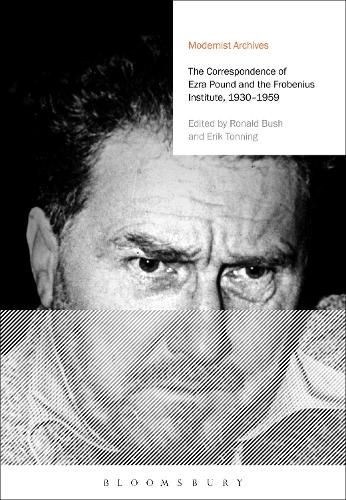Readings Newsletter
Become a Readings Member to make your shopping experience even easier.
Sign in or sign up for free!
You’re not far away from qualifying for FREE standard shipping within Australia
You’ve qualified for FREE standard shipping within Australia
The cart is loading…






Collecting in full for the first time the correspondence between Ezra Pound and members of Leo Frobenius’ Forschungsinstitut fur Kulturmorphologie in Frankfurt across a 30 year period, this book sheds new light on an important but previously unexplored influence on Pound’s controversial intellectual development in the Fascist era. Ezra Pound’s long-term interest in anthropology and ethnography exerted a profound influence on early 20th century literary Modernism. These letters reveal the extent of the influence of Frobenius’ concept of ‘Paideuma’ on Pound’s poetic and political writings during this period and his growing engagement with the culture of Nazi Germany. Annotated throughout, the letters are supported by contextualising essays by leading Modernist scholars as well as relevant contemporary published articles by Pound himself and his leading correspondent at the Institute, the American Douglas C. Fox.
$9.00 standard shipping within Australia
FREE standard shipping within Australia for orders over $100.00
Express & International shipping calculated at checkout
Collecting in full for the first time the correspondence between Ezra Pound and members of Leo Frobenius’ Forschungsinstitut fur Kulturmorphologie in Frankfurt across a 30 year period, this book sheds new light on an important but previously unexplored influence on Pound’s controversial intellectual development in the Fascist era. Ezra Pound’s long-term interest in anthropology and ethnography exerted a profound influence on early 20th century literary Modernism. These letters reveal the extent of the influence of Frobenius’ concept of ‘Paideuma’ on Pound’s poetic and political writings during this period and his growing engagement with the culture of Nazi Germany. Annotated throughout, the letters are supported by contextualising essays by leading Modernist scholars as well as relevant contemporary published articles by Pound himself and his leading correspondent at the Institute, the American Douglas C. Fox.